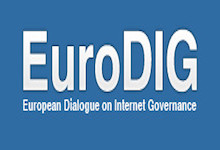From Internet users to digital citizens
9 Jun 2017 02:00h
Event report
The objective of the workshop was to discuss digital literacy in the current Internet environment, ways to upgrade the existing skill sets corresponding to the new reality, and successful examples of digital literacy initiatives and digital skills strategies for the community.
The moderator of the workshop, Ms Narine Khachatryan, Safer Internet, Armenia, stressed that digital skills have become a prerequisite and are constantly evolving. She said that it is important to deliberate on the type of skill development policy needed for reducing unemployment and to ensure that everyone can be skilled.
Ms Signe Balina, Counsellor to the Latvian Minister for Environmental Protection and Regional Development, President of Latvian Information and Communication Technology Association (LIKTA), stated that digital skills are important both for digital natives and digital immigrants. Latvia, she said, follows a multistakeholder approach and has developed a digital skills policy. By 2018, Latvia plans to introduce a competence-based curriculum. To ensure the trainings are being updated continuously, Balina suggested better co-operation between public and private organisations, with the latter taking care of the content.
Ms Kristel Rillo, Digital Skills and Lifelong Learning, Estonian Ministry of Education and Research, highlighted that although digital natives are good consumers, they face more risks which need to be addressed. The role of schools is significant. Estonia, she said, introduced digital competence in education in 2014. There are efforts to introduce digital skills in the future, which would follow a flexible curriculum. Responding to a question on the disconnect in the education systems, Rillo commented that there needs to be a shift in the way education, including digital skills, is imparted in higher education. There is a need to provide blended learning, taking into consideration how students learn and how teachers teach.
Ms Clara Sommier, Public Policy, Google, mentioned the concepts supported by Google, which include developing digital skills, digital literacy, and digital citizenship, as instruments empowering people to commit, engage, and react. She further shared five areas that Google is involved in: digital education, skills training, empowerment, providing a voice to people, as well as acknowledgement/recognition.
Mr Vitor Tome, Educational Policy Division, Council of Europe (CoE), shared the experience of CoE’s working group on digital literacy and digital competency. He reiterated the importance of building a digital competency that is teachable, learnable, and measurable. He added that policies need to move from safety and protection to positive empowerment, and that the responsibility of the education system needs to be reshaped.
Mr Stephen Wyber, Policy & Advocacy, International Federation of Library Associations, elaborated with examples of how libraries use the Internet to engage with communities, to provide meaningful access and skill people. He emphasised five areas of competency, which include information and data literacy, communication and collaboration, digital content creation, safety and problem solving.
Responding to a comment about involving students in the process of designing programmes, Sommier highlighted the role of young people as influencers, Tome suggested identifying resident peers and empowering them, and Rillo suggested making education more practical.
Suggestions from the audience include: the necessity for all actors to work together, the significant role of families, the importance of parents and teachers to work together, the role of role models and the need for countries to have a common strategy on digital skills and job scholarships.
Khachatryan concluded by saying that digital literacy today has a greater meaning, integrating social, technical and cultural aspects. She further added that digital savy citizens should know their rights, how to protect themselves online, how to use and create content in a responsible manner, and that efforts are needed from all stakeholders.
Related topics
Related event

